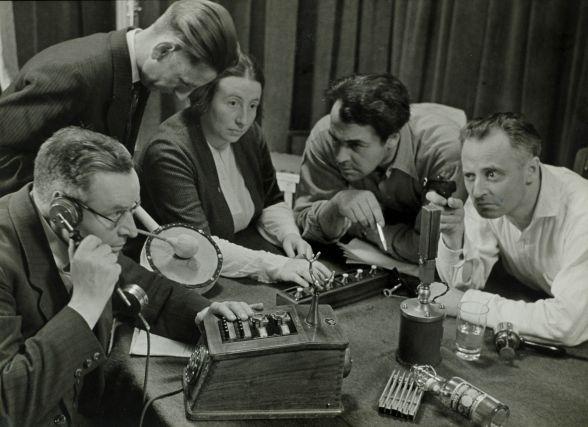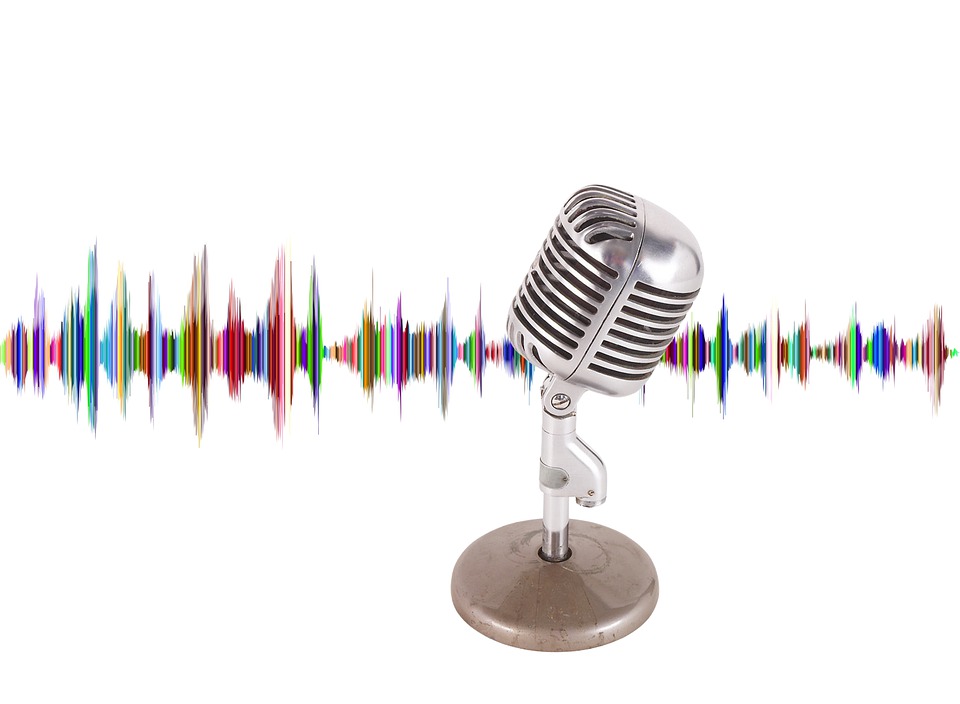
Before people had television, they used to listen to the radio much more for entertainment than they do now.
Actors used to be recorded as they performed dramatic or funny plays that were designed to be heard, not seen.
The actors had to use their voices to make the stories believable, while a person called a Foley created all the sound effects and added music. Most of the time, the plays were performed just like a stage play, with little or no editing. Even advertisements were performed live.
Today, with the help of computers, it's very easy for kids to create and perform in their own radio plays. It's a lot of fun, and unlike regular plays, you don't need costumes, props or sets because you're going to help your listeners imagine everything. Your radio play story can take place absolutely anywhere!
Here's what you will need:
- A script
- Actors
- Sound effects and music
- A smartphone or computer with a microphone
- Software to edit and produce your play (optional)
1. The Script

You can write your own play, either from a story you already know, or from your imagination. Remember that your audience can't see you, so make sure the lines are descriptive so everyone can understand what's happening. Rather than saying, "Eric, put that down! You can't eat it yet", the character needs to say something like, "Eric, put down that cookie. We just baked them and they're still too hot." This allows your listeners to see the action in their minds.
Don't forget to write all the sound effects into your script. If someone knocks at the door, or a phone rings, or if there is water being poured, or if your characters are in a car, letting the audience hear the background sounds creates a realistic performance.
If you don't want to write a script, you can find plays in books or online, and adapt them for radio. There are even free radio plays available online so you can search for something suitable.
You'll need enough copies of the script for everyone involved to be able to read when you're recording.
2. Actors

Once you have your script ready, you can cast your play. Casting means that you are choosing actors to play the different parts. Of course, being a radio play, you can play all the parts yourself if you want to. Just make sure to use different voices for each so that it's always clear who is talking.
Otherwise, you can ask your friends and family to play the parts and join in the fun.
Each actor should think about how his character might sound. For example, is the voice high or low - is it gentle or rough? What type of emotions does the character have as the story unfolds? What does the character think of the other characters and how does this change the voice?
Everyone should have a read through, and practice a bit before performing.
3. Sound Effects and Music

While you don't have to use sound effects and music, they really make a radio much better. Make a list of the sound effects you need, and see what you can use to make them. Use your imagination! Have a look at the video on the Be a Foley Artist - Make Your Own Sound Effects page if you need some ideas.
Make sure you have everything ready to make your sound effects before you start recording.
You can also download almost any sound effect you need free from the internet. We'll talk about that a bit later on.
Music also enhances a radio play. You can create a happy, scary or tragic atmosphere just from the music you use.
4. A Smartphone or Computer with a Microphone

When everyone is ready to perform, you need equipment to record your play. Luckily today almost everyone is able to record at home with voice memos on a smartphone or on a computer. There are lots of different devices, to it's best to do some research to find out how to record on whatever you have at home.
Make sure that before you start recording you won't be interrupted, everyone has a script and all your sound effects are ready.
Then you can start recording! Introduce your play and start acting.
Of course, often it is impossible to perform a radio play with all the music and sound effects from beginning to end without making a mistake. Luckily technology can come to the rescue.
5. Software to edit and produce your play

Rather than being under pressure to do the whole play all at once, you might prefer to record it in bits and then edit it. Editing is the process of taking all the recorded bits and putting them together into a finished product.
Sound effects and music can be added later, and mistakes can be chopped out and replaced.
There is plenty of free software online to use to edit and produce an audio (sound) recording. You could create a podcast, or even turn your play into a video and put it up on a platform like YouTube.
It's so fun to be creative and tell stories. When you have finished your play, you'll have a wonderful memory of your work which you can keep and show off to your friends and your family.








